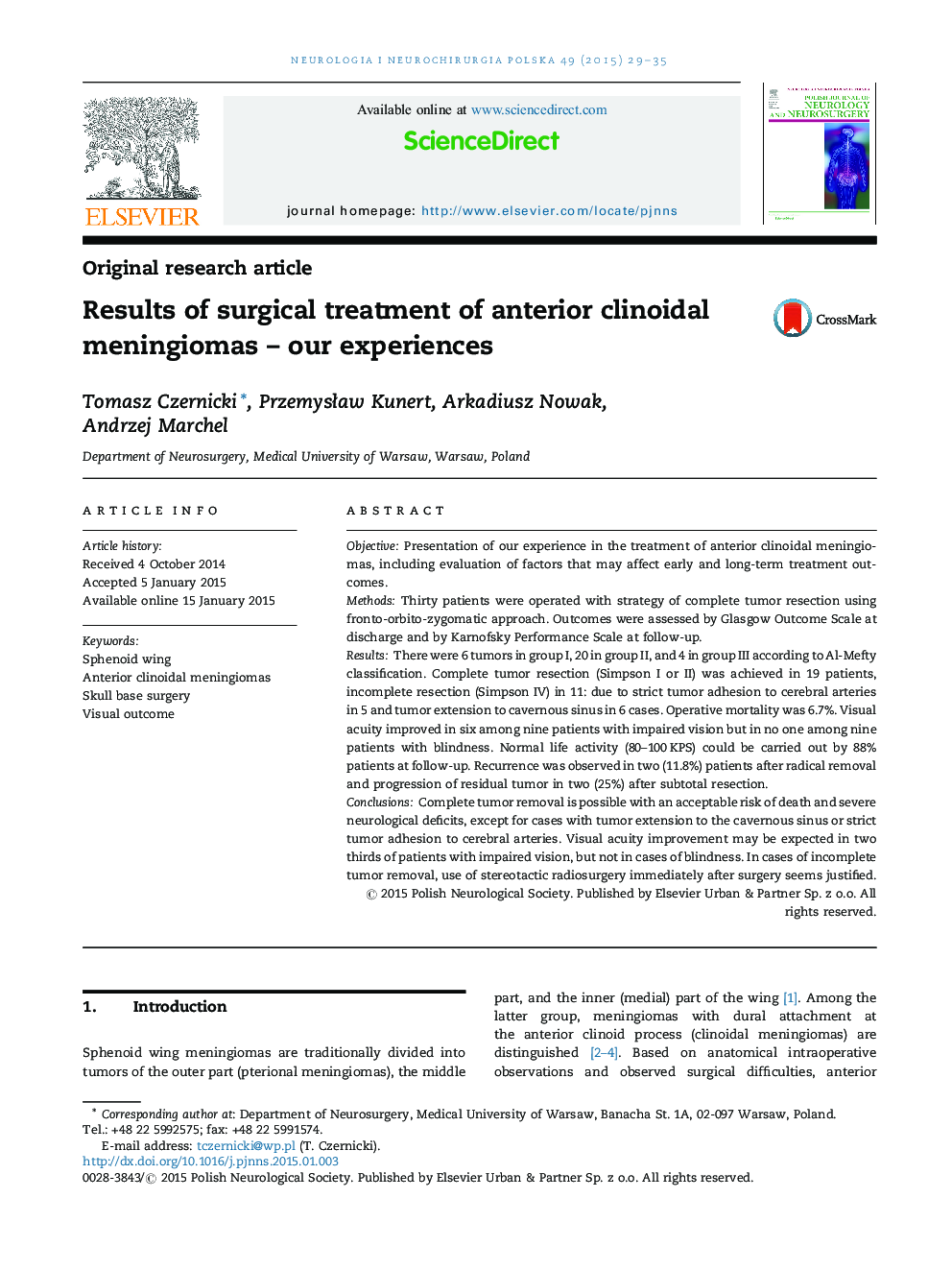| Article ID | Journal | Published Year | Pages | File Type |
|---|---|---|---|---|
| 2152665 | Neurologia i Neurochirurgia Polska | 2015 | 7 Pages |
ObjectivePresentation of our experience in the treatment of anterior clinoidal meningiomas, including evaluation of factors that may affect early and long-term treatment outcomes.MethodsThirty patients were operated with strategy of complete tumor resection using fronto-orbito-zygomatic approach. Outcomes were assessed by Glasgow Outcome Scale at discharge and by Karnofsky Performance Scale at follow-up.ResultsThere were 6 tumors in group I, 20 in group II, and 4 in group III according to Al-Mefty classification. Complete tumor resection (Simpson I or II) was achieved in 19 patients, incomplete resection (Simpson IV) in 11: due to strict tumor adhesion to cerebral arteries in 5 and tumor extension to cavernous sinus in 6 cases. Operative mortality was 6.7%. Visual acuity improved in six among nine patients with impaired vision but in no one among nine patients with blindness. Normal life activity (80–100 KPS) could be carried out by 88% patients at follow-up. Recurrence was observed in two (11.8%) patients after radical removal and progression of residual tumor in two (25%) after subtotal resection.ConclusionsComplete tumor removal is possible with an acceptable risk of death and severe neurological deficits, except for cases with tumor extension to the cavernous sinus or strict tumor adhesion to cerebral arteries. Visual acuity improvement may be expected in two thirds of patients with impaired vision, but not in cases of blindness. In cases of incomplete tumor removal, use of stereotactic radiosurgery immediately after surgery seems justified.
